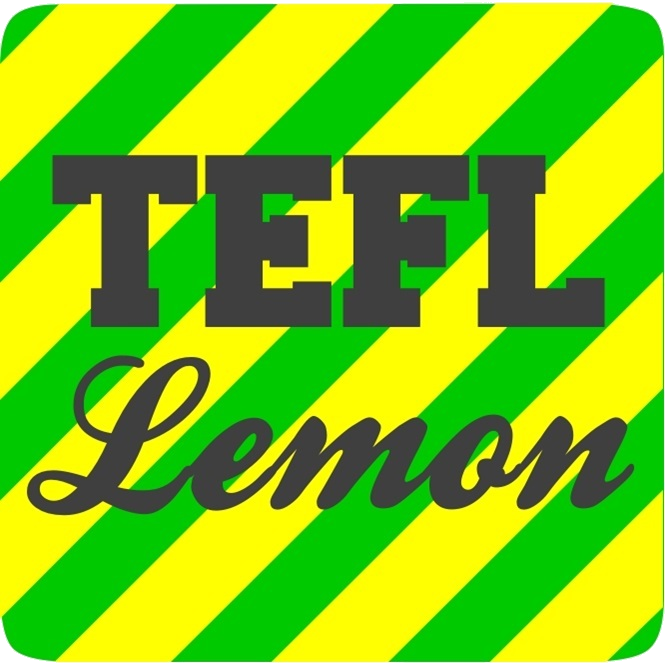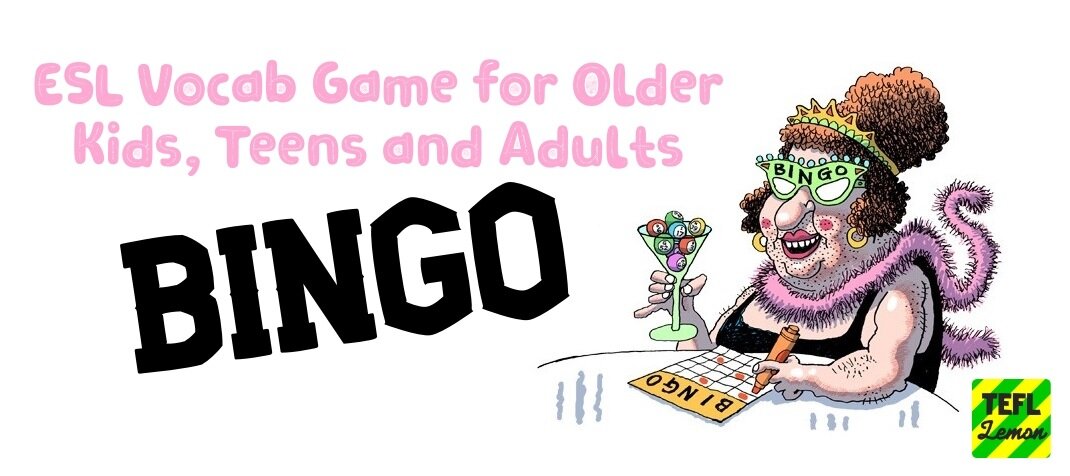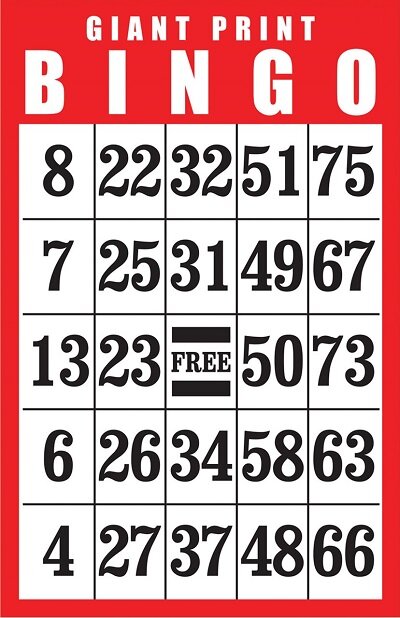Bingo! ESL Vocab Game for Older Kids, Teens and Adults
Bingo is a classic gambling game where players mark off numbers on cards as the numbers are drawn randomly by a caller, the winner being the first person to mark off all their numbers on their Bingo card. However, this game can easily altered to be used to teach ESL vocab in your classroom to older kids, teens and adults.
How to Play Bingo?
To play Bingo for ESL, you'll need at least 15-25 words which you’ve been studying recently in your English classes. Next, you’ll need to make your Bingo cards. You can see a normal bingo card with numbers below:
This is a normal Bingo card with numbers. The caller at the front slowly calls out random numbers from 1-90. If a player has a number on their card, then they scribble out the number. The first player to scribble out all their numbers is the winner. Each Bingo card is different, so there can only be one winner.
Making your ESL Bingo cards
In this ESL Bingo version, you’ll need to create Bingo cards for each student in your class, but instead of using numbers, they’ll have recently studied vocabulary on their cards.
Making Bingo cards for each ESL student sounds like too much hassle, but there is a website which will randomly generate ESL Bingo cards…all you need to do is to type in your 15-25 words, hit ‘Enter’, and the website will instantly generate all your Bingo cards…easy!
You can generate your ESL Bingo cards to practice vocabulary here.
Playing Bingo in ESL Classes
Hand out one Bingo card to each student. Each Bingo card should have nine or so words from your full list of words. Each Bingo card will be different.
Explain to your class that you’ll be calling out words from your list and that the students need to listen carefully. If they have a word on their Bingo card which you call out, then they need to cross out the word.
How to win ESL Bingo
Keep calling out ESL vocabulary from your list and you’ll see students crossing off the words on their cards as they hear them. Eventually, one student will have crossed out all of their words and should shout out ‘Bingo!’ to show that they’ve finished. The teacher should then check the student’s card to see that they have all the words you’ve said.
This is a super easy and enjoyable game for students and you can be sure that they’ll want to play Bingo for learning vocabulary again. If students use pencils, then they can rub out their pencil on their bingo cards and you can all play Bingo again.
Instead of just using words, why not give definitions?
For older students, or those with better English, instead of calling out the word, you can call out the definition, so students need to listen more carefully and think about the meaning of the words on your card. Playing Bingo to practice vocabulary and lexis is a great activity for your students and you can be sure that they’ll want to play often.
To switch things up, why not have a student come to the front to call out the vocabulary or to give the definitions?
Have fun!
by Stuart Allen
Want to find other good ESL activities?
Swatter Stories pits two teams of teen or adult students against each other and is fantastic listening practice and a whole lotta fun! Students form two lines and each person at the front has a fly swatter and must listen to your story very carefully and be super fast!
Ring of Fire brings a classic pub drinking game to the classroom for language learning…except no beer, of course!



